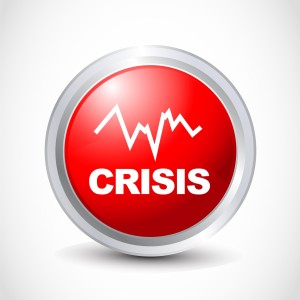
Ramsey County is launching a pilot program aimed at helping those with mental health issues get the support they need when a call to 911 is made.
Under the old policy, if a person called 911 with a non-emergency to tell the dispatcher that a friend or family member was acting weirdly or had stopped taking their medications, Ramsey County would dispatch a police officer to the location to assess the situation. Unfortunately, sometimes this only served to escalate the situation. With the new policy, 911 calls involving situations that don’t involve crime or serious risk will be transferred to the Ramsey County’s mental health crisis line, where mental health professionals will provide assessments and assistance over the phone.
“People are calling 911 for a police response because they know they need help, but they don’t necessarily know that mental health crisis services are available,” said Alyssa Conducy, who manages the county’s adult mental health and chemical services. “This is an opportunity to connect people to the right resource at the right time, so that they can get whatever services they might need.”
The pilot program will begin today, and the ultimate goal is to reduce the number of incidents where the repsonding officer needs to use force to subdue a mentally unstable person. A look into the vault shows that since 2004, nearly 30 percent of people who have been fatally shot by Minnesota police officers have been mentally ill. Some of them were certainly threatening the lives of officers and citizens, but others died because the presence of a police officer escalated the situation. These mental health professionals are specifically trained to de-escalate the situation.
“A mental health professional really does know how to de-escalate, how to engage the person and how to support them,” said Sue Abderholden, executive director of the National Alliance on Mental Illness’ Minnesota chapter.
Pilot Program Basics
The pilot program hopes to help mentally unstable individuals get the help they need, but only if the person isn’t an immediate danger to themselves or others. In order for a call to be re-routed to the mental crisis line, the person in question must not:
- Be committing a crime
- Possess a weapon
- Have hurt themselves or others
- Have threatened to hurt themselves or others.
If any of the above conditions are present, police officers will be sent to the location.
Abderholden said the Ramsey County pilot program is “a good starting place,” but she’d like to see more police go through Crisis Intervention Training. In St Paul, only about one-third of front-line police officers have been certified in Crisis Intervention Training.
According to the data, the Emergency Communications Center dispatched more than 573,600 calls last year, and about 4,400 involved a person who was coded “emotionally disturbed.” This averages out to about 12 calls a day, and Ramsey County expects to send 2-3 calls a day to the new crisis line.





